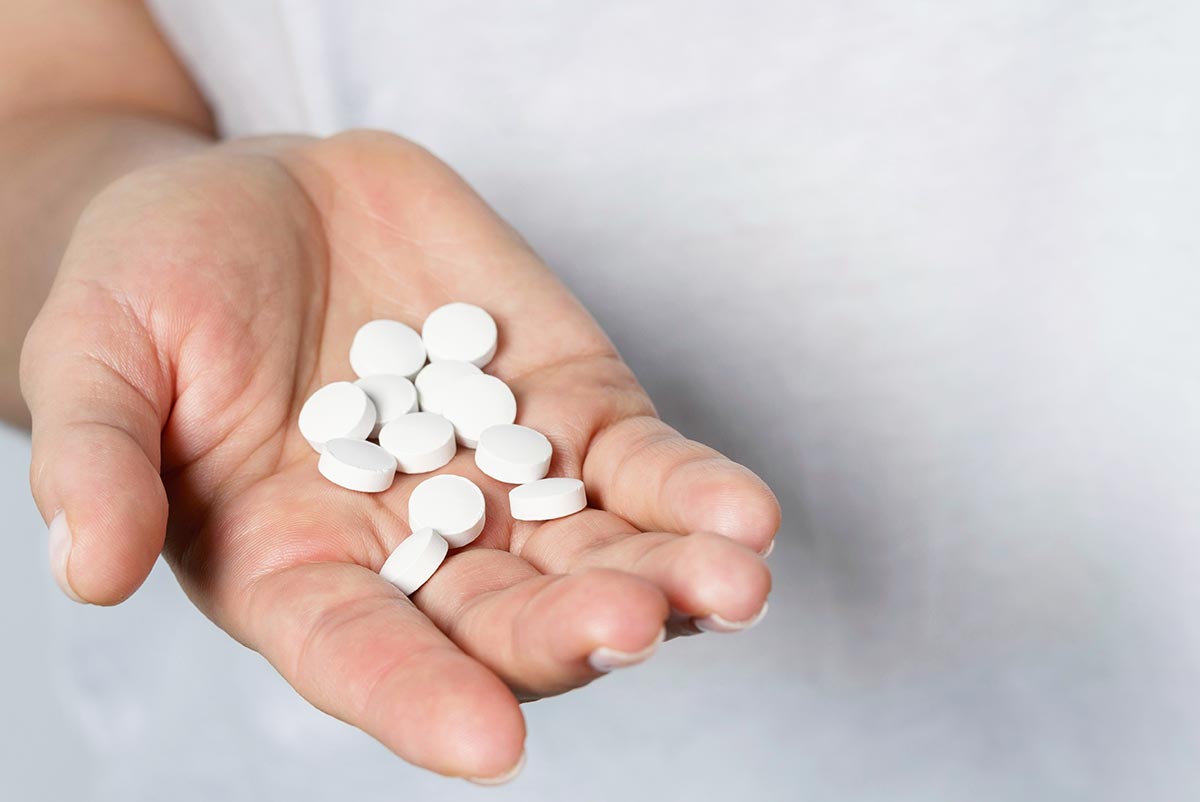
Captagon, often called captagon tablets or cap, is an amphetamine-based drug used recreationally in much of the Middle East and in Europe. Captagon’s main ingredient is Fenethylline, which is similar to amphetamine and theophylline. Theophylline is in the same family as stimulant drugs like caffeine and, is in fact, naturally present in coffee. This mix of uppers, amphetamine with a caffeine-like energy boost, has led many to call Captagon “Poor Man’s Cocaine”.
Today, Captagon is increasingly making its way to the United States. While, 5 years ago, it was largely only known from U.S. initiatives to disrupt the drug trade in Syria, today, it’s increasingly becoming a drug of choice as restrictions on opioids and awareness of the dangers of fentanyl make opioids harder and harder to get.
What is Captagon?
Captagon was first synthesized in the 1960s in Europe, and was quickly put into place as a lighter version of amphetamine. The drug, fenethylline was legally used across the United States, Europe, and Asia and was used for treating ADD, narcolepsy, and depression. By the 1980s, it was moved into status as a Schedule I Controlled Drug in the United States, despite recorded abuse being quite low. The drug was made illegal in most of the world and remains so to this day.
Instead, the drug is widely synthesized and sold as a recreational drug. In addition, manufacture in Syria is controlled by the Syrian government, and Syria is responsible for about 80% of the world’s supply. The drug is abused across Asia and Southeast Asia, most of the Middle East, and increasingly, Europe and the United States. While mostly well-known from the Arab party scene, the drug is also used for soldiers and for fundraising for government activities.
In addition, the drug is normally manufactured as a powder and may be sold as such. However, more often, it’s sold as “Captagon” pills, which are made to look like the original brand name for the drug.
Captagon: Codrug to Theophylline and Amphetamines
Captagon is a codrug to amphetamines and to theophylline, a drug in the same family as caffeine. The result is that it’s a stimulant, with significant impacts to energy, the cardiovascular system, mood, and ability to sleep. Actual effects are usually compared to a light dose of amphetamines. However, because of the theophylline, Captagon usually has a stronger impact on blood pressure and sleeplessness, meaning it can have different impacts on health.
Get Your Questions Answered
Our expert & caring staff on site are available 24/7. Call us today.
Who Uses Captagon?

Captagon is called poor man’s cocaine because it’s an “upper”. As a stimulant drug, it’s extremely popular in party scenes and with students. This is led by the fact that it’s often easy to take (in pill form) and has similar effects to amphetamines. The result is that Captagon is replacing amphetamines in:
- LGTBQ and Gay party and rave scenes
- For students
- For prescription Adderall users who can’t get their prescription
This is all exacerbated by the ongoing shortage of prescription amphetamines like Adderall, which means that people who would historically use amphetamine pills are now turning to illicit alternatives that, if less reliable, are more available.
The drug shortage of Adderall also means that it’s increasingly likely that drug sellers will stop selling methamphetamine as counterfeit Adderall and will instead switch to selling Captagon. While this would be an improvement over counterfeit Adderall containing fentanyl, it still means that ER staff don’t know what they are treating when someone comes in with an overdose – meaning the likelihood of death is much higher.
Dangers of Captagon Use
Captagon is a stimulant with effects somewhere in between Adderall and caffeine. That means it has more significant impact on heart stress and blood pressure.
In addition, Captagon has multiple social, economic, and health side effects:
- Captagon is available cheaply, sometimes for as little as $3 per pill making it an easy alternative to Adderall and prescription amphetamines. It can even be cheaper than methamphetamine in some cases.
- Captagon synthesis and trade is almost entirely used to fund activities in the Middle East which impact human rights and quality of life for people in those countries
- Amphetamines are addictive and can have significant impacts to mental and behavioral health.
- Amphetamine use in students rarely leads to ongoing drug use, however, fluctuating availability of amphetamines like Adderall lead to adoption of drugs like Captagon and Methamphetamine
- Captagon has a lower addiction profile than methamphetamine but can be addictive and can result in behavioral disorders. It may also lead to adopting methamphetamine when the Captagon supply runs out.
- Captagon is entirely available illicitly, meaning there are no quality controls on the product. Seized samples typically show active contamination such as caffeine, quinine, and other substances. This means that a student taking what they think is an Adderall pill to study or taking an upper for a party could unknowingly be taking an overdose of caffeine or another drug. With no controls in place, all drugs on the market are effectively unsafe.
- Captagon is little-known to the U.S. medical health system, meaning that it is difficult to treat or reverse overdoses. Individuals going to the hospital following an overdose are less likely to receive meaningful or timely treatment, meaning risk of death and long-term complications are higher.
Captagon sits somewhere in between a prescription dose of Ritalin and taking methamphetamine in terms of danger. It has addiction and overdose potential, it can have lasting side-effects on health and mental health, and it isn’t always possible to predict the quality or purity of the drug without first having pills tested. In addition, as Captagon is increasingly used to replace Adderall, it’s available to a market that isn’t familiar with drugs that aren’t made to quality standards in a lab.
Getting Help

If you or a loved one is using stimulants like Adderall, methamphetamine, or captagon, you’re making a choice to use something that’s dangerous, that can cause complications like addiction, and that will impact your mental and physical health for the near future. With Captagon, you are specifically using a drug that is only manufactured illicitly, meaning there is no possibility of quality manufacture or quality controls. You don’t know what you’re taking, if there are contaminants, or if the drug is even what it’s being sold as. Instead, you could be getting whatever the dealer had cheap on hand. That could be fentanyl, it could be Captagon, it could be methamphetamine… you don’t know.
That means it’s important to get help with quitting using illicit substances like Captagon. If you use, you’re putting yourself at risk every time. And, if you can’t stop on your own, mental health help like cognitive behavioral therapy can give you the tools to do so.
Captagon is a new drug in the United States, and it’s increasingly used to replace recreational Adderall. However, with fewer controls and no quality controls on drug manufacture, Captagon is more dangerous because you don’t know what you’re taking. If you intend to continue to use, it’s important to use a drug testing program like DanceSafe to rule out potentially dangerous or even lethal contaminants before using. These programs are normally free or low cost and mean that you understand exactly what you’re taking and in what amounts, so you can mitigate potential negative side effects.
If you or a loved one needs help, talk to your doctor, you can move into rehab and addiction treatment and kick habits like amphetamines for good.






